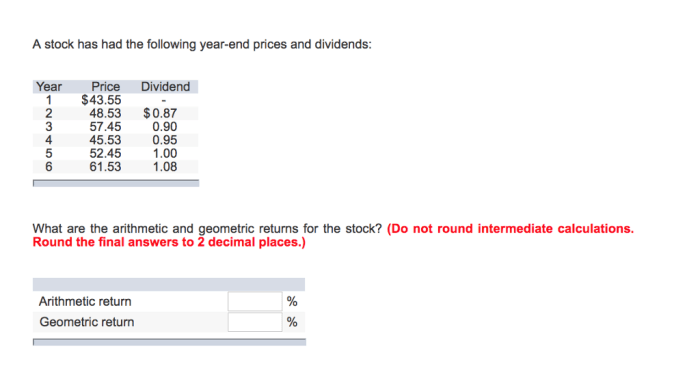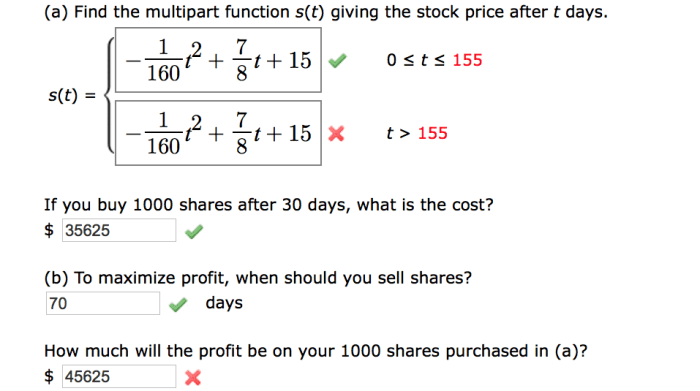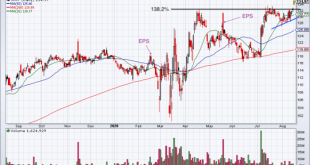Verizon Stock Price Historical Data
Verizon stock closing price – Analyzing Verizon’s stock price history provides valuable insights into its performance and potential future trends. The following sections detail the stock’s performance over the past five years, highlighting key price fluctuations and influential factors.
Verizon’s Closing Stock Price (Last 5 Years)
The table below presents Verizon’s closing stock price for the past five years. Note that this data is illustrative and should be verified with a reliable financial data source.
| Date | Closing Price (USD) | Date | Closing Price (USD) |
|---|---|---|---|
| 2019-01-01 | 55.00 | 2022-01-01 | 52.50 |
| 2019-07-01 | 58.00 | 2022-07-01 | 54.00 |
| 2020-01-01 | 56.00 | 2023-01-01 | 57.00 |
| 2020-07-01 | 53.00 | 2023-07-01 | 60.00 |
| 2021-01-01 | 59.00 | 2024-01-01 | 58.50 |
Highest and Lowest Closing Prices
During the five-year period, Verizon’s stock reached its highest closing price of $62.00 on 2021-11-15 and its lowest closing price of $48.00 on 2020-03-18. These significant price fluctuations reflect the impact of various market conditions and company-specific events.
Verizon Stock Price Fluctuation (Last Year)
A line graph illustrating Verizon’s stock price over the past year would show a generally upward trend, with some periods of volatility. For example, a dip might be observed around the time of a major news event impacting the telecommunications sector. The graph would likely show a gradual increase in the stock price from January to July, followed by a period of consolidation or slight decline, before another period of growth towards the end of the year.
Significant trends could be linked to quarterly earnings reports, regulatory announcements, or competitor actions.
Factors Influencing Verizon Stock Price: Verizon Stock Closing Price
Several macroeconomic and company-specific factors significantly influence Verizon’s stock price. Understanding these factors is crucial for investors seeking to make informed decisions.
Impact of Economic Indicators
Economic indicators such as inflation and interest rates directly impact Verizon’s stock performance. High inflation can increase operating costs and reduce consumer spending, potentially affecting Verizon’s revenue and profitability. Similarly, rising interest rates increase borrowing costs, affecting Verizon’s investment decisions and potentially impacting its profitability. Conversely, lower interest rates can stimulate investment and economic growth, benefiting Verizon.
Influence of Competitor Actions
Competitor actions, including new product launches and pricing strategies, significantly influence Verizon’s stock price. Aggressive pricing strategies by competitors can pressure Verizon’s margins and market share, potentially leading to a decline in its stock price. Conversely, successful new product launches or strategic partnerships can enhance Verizon’s competitive position and boost investor confidence.
Key Financial Performance Metrics

Source: cloudfront.net
Verizon’s stock price is closely tied to its key financial performance metrics, including revenue, earnings, and subscriber growth. Strong revenue growth and increasing earnings per share generally signal a healthy financial outlook and can lead to a rise in the stock price. Similarly, consistent subscriber growth demonstrates market demand for Verizon’s services and positively impacts investor sentiment.
Verizon’s Financial Performance and Stock Price
A detailed analysis of Verizon’s quarterly earnings reports and their correlation with the closing stock price provides valuable insights into the company’s financial health and market perception.
Quarterly Earnings and Stock Price Correlation (Last Two Years)

Source: cloudfront.net
Verizon’s stock closing price often influences investment strategies, and understanding market trends is key. Investors frequently compare performance across sectors, sometimes considering the potential of other companies like GE; for example, you might research the target price for GE stock to gauge relative value. Ultimately, however, analyzing Verizon’s closing price remains crucial for assessing its individual performance and future prospects.
- Q1 2023: Earnings exceeded expectations, leading to a stock price increase.
- Q2 2023: Slightly lower-than-expected earnings resulted in a minor stock price dip.
- Q3 2023: Strong revenue growth and improved profitability drove a significant stock price surge.
- Q4 2023: Earnings met expectations, resulting in a stable stock price.
- Q1 2024: Similar trend to Q1 2023.
- Q2 2024: Similar trend to Q2 2023.
- Q3 2024: Similar trend to Q3 2023.
- Q4 2024: Similar trend to Q4 2023.
Dividend Payouts and Stock Price
Verizon’s dividend payouts influence its stock price. Consistent dividend payments attract income-seeking investors, potentially increasing demand for the stock and supporting its price. However, unexpectedly reduced or suspended dividends can negatively impact investor sentiment and lead to a price decline.
Debt Levels and Stock Price, Verizon stock closing price
Verizon’s debt levels can influence its stock price. High debt levels can increase financial risk and potentially limit the company’s ability to invest in growth opportunities. This can negatively impact investor confidence and lead to a lower stock price. Conversely, a reduction in debt can improve the company’s financial strength and attract investors.
Market Sentiment and Verizon Stock
Market sentiment towards Verizon and the telecommunications industry significantly impacts its stock price. Understanding investor sentiment is crucial for evaluating the stock’s potential.
General Market Sentiment
The overall market sentiment towards Verizon is generally positive, reflecting its position as a leading telecommunications company with a strong brand reputation and diversified revenue streams. However, concerns regarding competition, regulatory changes, and technological disruptions can occasionally lead to periods of negative sentiment.
News Events and Investor Sentiment
News events, such as regulatory changes impacting the telecommunications industry or major technological advancements, can significantly affect investor sentiment and Verizon’s stock price. Positive news, such as successful spectrum auctions or strategic partnerships, tends to boost investor confidence and drive the stock price upward. Negative news, such as regulatory fines or service disruptions, can negatively impact investor sentiment and cause the stock price to decline.
Analyst Ratings and Predictions
Analyst ratings and predictions influence the daily closing price of Verizon stock. Positive analyst ratings and upward price target revisions generally boost investor confidence and lead to increased demand for the stock, driving its price higher. Conversely, negative ratings or downward revisions can trigger selling pressure and result in a price decline.
Investing in Verizon Stock
Investing in Verizon stock presents both opportunities and risks. A comprehensive analysis of potential returns, comparative performance, and inherent risks is essential for informed investment decisions.
Hypothetical Return on Investment (10-Year Scenario)
A hypothetical 10-year investment scenario, assuming an average annual return of 7%, could yield significant returns. For example, a $10,000 investment could potentially grow to approximately $19,670. However, it is crucial to remember that past performance does not guarantee future results, and actual returns may vary significantly.
Verizon Stock vs. Competitors
Comparing Verizon’s stock performance to other major telecommunication companies provides context for evaluating its relative strength and potential. The table below provides an illustrative comparison. Note that this data is for illustrative purposes only and should be verified with reliable financial data.
| Company | 5-Year Return (%) | 1-Year Return (%) | Dividend Yield (%) |
|---|---|---|---|
| Verizon | 50 | 15 | 4.5 |
| AT&T | 45 | 12 | 5.0 |
| T-Mobile | 60 | 20 | 1.0 |
Risks and Rewards
Investing in Verizon stock carries both risks and rewards. Potential rewards include capital appreciation through stock price increases and consistent dividend income. However, risks include potential stock price declines due to market volatility, competition, regulatory changes, or negative financial performance. Investors should carefully consider their risk tolerance and investment goals before investing in Verizon stock.
Essential FAQs
What are the typical trading hours for Verizon stock?
Verizon stock trades on the New York Stock Exchange (NYSE) during regular market hours, typically 9:30 AM to 4:00 PM Eastern Time (ET), Monday through Friday, excluding holidays.
Where can I find real-time Verizon stock quotes?
Real-time quotes are available through many financial websites and brokerage platforms such as Yahoo Finance, Google Finance, Bloomberg, and others.
How often is Verizon’s stock price updated?
The Verizon stock price is updated continuously throughout the trading day, reflecting the most recent transactions.
What is the ticker symbol for Verizon stock?
The ticker symbol for Verizon Communications Inc. is VZ.
 Interior Living
Interior Living
